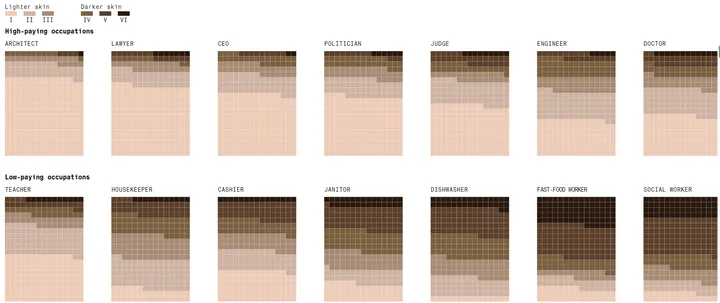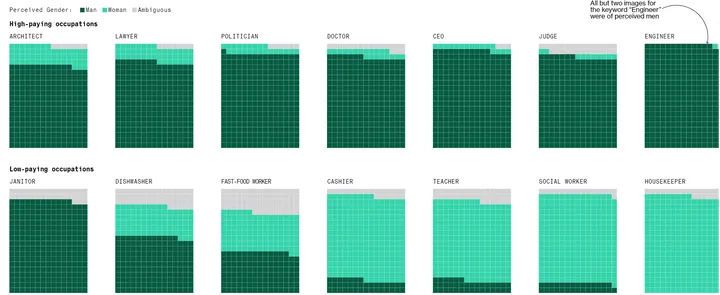
You Can’t Spell Theatre Without AI
Ushering in a new era of creativity and innovation
Theatre has always been a space for human expression, a platform where stories come to life through the collective effort of actors, directors, playwrights, and designers. However, the advent of artificial intelligence (AI) is ushering in a new era of theatre-making, one that blends the traditional with the cutting-edge, and challenges our notions of creativity and collaboration.
AI's role in theatre is multifaceted, with its capabilities being explored in various aspects of production. From playwriting to stage design, ticketing to audience interaction, AI is proving to be a valuable asset in the theatre industry.

AI's foray into playwriting is perhaps one of the most intriguing developments. Pioneers like Annie Dorsen have embraced AI as a creative partner, co-creating theatrical experiences that are unique every night. Dorsen's work in Algorithmic Theatre uses custom algorithms to generate scripts, combining AI's computational power with classical theatrical techniques.
Similarly, AI algorithms trained on vast databases of plays and scripts are now capable of producing original, coherent, and engaging scripts. This not only provides a new tool for playwrights but also opens up possibilities for exploring narrative structures and themes that may have been previously unattainable.
In stage design, AI assists set designers and visual effects artists in creating immersive environments. By analysing scripts and the director's vision, AI can suggest design elements, simulate lighting scenarios, and even generate virtual prototypes, thereby enhancing the visual storytelling of a production.
The Young Vic's production of 'AI' is a testament to the potential of AI in theatre. The show was a collaboration between humans and AI, where the technology was not just a tool but a virtual star, contributing to the soundtrack and the dramaturgy of the piece.
Find out more about the young Vic’s production here!
AI's impact extends beyond the stage to how audiences engage with theatre. AI-powered systems can personalise the ticketing experience, offering recommendations based on individual preferences, and even predict audience turnout, helping theatres optimise their operations.

Despite the exciting prospects, the integration of AI in theatre is not without its challenges. Ethical considerations, the fear of dehumanising art, and the potential loss of jobs are concerns that need to be addressed. Moreover, the unpredictability of AI-generated content requires a new kind of flexibility and adaptability from human collaborators. The power of AI resides in the information it currently holds on the world around us. For instance, it can display prejudices, insisting that the character played by Akhtar, in the Young Vic’s AI production should be a terrorist while also typecasting him as a Muslim in flowing robes.
A 2023 article by Bloomberg Technology further highlights the prevalence of prejudice within AI systems. The article based on research of Stable Diffusion, an AI model which generates images based on written prompts, found that when the model was prompted to create images of people in ‘high paying’ jobs, it was more likely to generate images of lighter skinned people. Whereas darker skinned people were more commonly generated by prompts such as ‘fast food worker’ and ‘social worker’.

These disparities did not just stop with race, however. When the system generated images depicting people perceived as women, the system also generated three times as many images of people depicted as men; suggesting the labour force was almost entirely made up of men. When it did generate images of people perceived as women it was overwhelmingly for ‘low paying jobs’ like, housekeeper and cashier.
Although Stable Diffusion uses open-source AI, gathering information from real world sources, the images it created did not reflect the reality as told by the US Bureau of Labour Statistics, which tracks the race and gender of workers in every occupation through monthly household surveys. It turns out the situation through the lens of AI is a lot worse than the reality.
The use of AI in theatre is still in its infancy, but it's clear that it has the potential to revolutionise the way theatre is created and experienced. As AI continues to evolve, so too will its applications in the arts. The key will be finding a balance between technology and humanity, ensuring that AI serves as a tool to enhance, rather than replace, the human touch in theatre-making.
Theatre-makers and audiences alike are on the cusp of a new frontier, one where AI not only supports the creative process but also becomes an integral part of the storytelling itself. As we navigate this new landscape, the possibilities for innovation and creativity are boundless. However, we need to be careful that the use of AI does not start negatively impacting the representation of cultures and people who have fought so hard over the years just to be seen as human.
Let us know what you think about this article and the future of AI in theatre, by dropping us an email, or sharing your thoughts on our social media pages.
References and further reading
CMU AI in theatre-making: https://amt-lab.org/blog/2023/5/artificial-intelligence-amp-theatre-making-past-present-and-future
The Guardian Young Vic's AI-driven play: https://www.theguardian.com/stage/2021/aug/24/rise-of-the-robo-drama-young-vic-creates-new-play-using-artificial-intelligence
Theatrehaus AI applications in theatre: https://www.theatrehaus.com/2023/04/a-guide-to-the-practical-application-of-artificial-intelligence-for-theatremakers/
KolahaLorg AI in theatre production: https://kolahal.org/2024/02/06/power-of-ai-in-theatre-production/
Medium AI as a playwright: https://medium.com/@aifinders/ai-playwright-unleashing-the-power-of-artificial-intelligence-in-theatre-de2e11c147b4
Humans are biased. Generative AI is even worse: https://www.bloomberg.com/graphics/2023-generative-ai-bias/